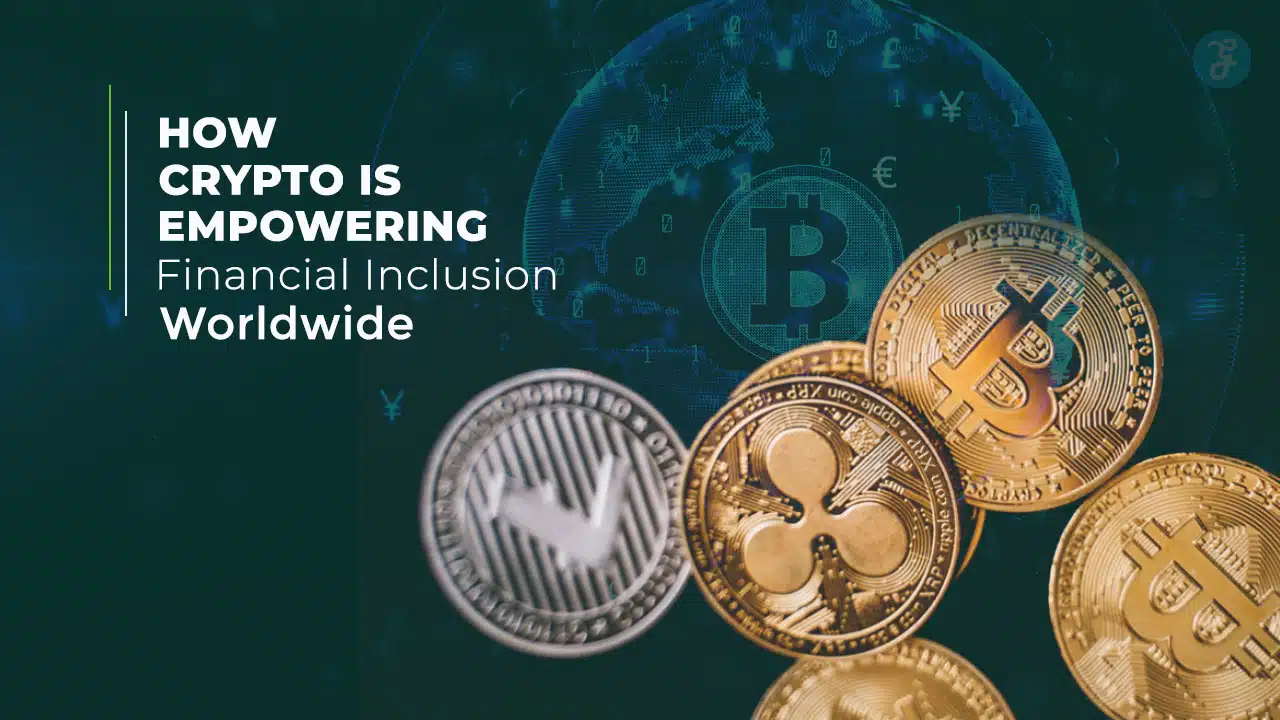How crypto is empowering financial inclusion worldwide is a critical topic, affecting billions of people who lack access to traditional banking services.
Many individuals, particularly in developing economies, are excluded from the financial system due to high banking fees, geographical barriers, and strict regulations.
The lack of financial access limits their ability to save, invest, and participate in the global economy. Additionally, unreliable banking systems, hyperinflation, and government-imposed capital controls further restrict financial freedom in many parts of the world.
In recent years, digital currencies have emerged as a game-changing solution, breaking down financial barriers and offering an alternative to traditional banking.
Cryptocurrencies provide financial inclusion by enabling low-cost, decentralized, and borderless transactions.
Whether through mobile-based crypto wallets, stablecoins, or decentralized finance (DeFi) platforms, crypto is transforming the way people access and utilize financial services.
This article explores how crypto is empowering financial inclusion worldwide, providing accessible and efficient financial solutions for the unbanked and underbanked.
What Is Financial Inclusion?
How crypto is empowering financial inclusion worldwide is best understood by first defining financial inclusion. Financial inclusion refers to the accessibility and availability of financial services for all individuals, regardless of economic status or geographic location.
A fully inclusive financial system ensures that everyone has access to services such as:
- Banking accounts – Essential for savings, payments, and financial transactions.
- Credit and loans – Providing individuals with opportunities to invest and grow businesses.
- Investment opportunities – Enabling wealth creation and financial growth.
- Insurance – Offering protection against unforeseen financial hardships.
- Secure digital transactions – Ensuring safe and efficient money transfers.
| Financial Service | Importance |
| Banking Accounts | Securely store and manage money |
| Credit & Loans | Enable business growth and personal investments |
| Investment Opportunities | Build wealth and financial security |
| Insurance | Protect against financial risks |
| Secure Digital Transactions | Facilitate fast and safe money transfers |
Key Challenges to Financial Inclusion
Despite its importance, financial inclusion remains a challenge worldwide due to several barriers. Understanding these challenges helps clarify how crypto is empowering financial inclusion worldwide.
- Limited Access to Banking Services – Many rural areas lack physical banking infrastructure, making it difficult for people to open accounts or access financial services.
- High Transaction Fees – Traditional banking systems impose high fees for services such as international money transfers, which disproportionately affect low-income individuals.
- Financial Discrimination – Many financial institutions have strict eligibility criteria that exclude people without credit histories or stable incomes.
- Regulatory Barriers – Government policies and regulations can limit access to financial services, especially in countries with strict capital controls.
- Lack of Financial Education – Many individuals, particularly in developing economies, lack knowledge about how financial services work, limiting their ability to participate effectively.
- Currency Instability and Inflation – Some regions experience extreme inflation, making it difficult to store wealth using local currencies.
| Challenge | Impact |
| Lack of Banking Access | Prevents savings and secure transactions |
| High Transaction Fees | Limits affordable financial interactions |
| Financial Discrimination | Excludes marginalized communities |
| Regulatory Barriers | Restricts financial innovation and access |
| Lack of Education | Hinders financial decision-making |
| Currency Instability | Reduces trust in local financial institutions |
How Crypto Is Driving Financial Inclusion Globally?
One of the key ways how crypto is empowering financial inclusion worldwide is through decentralization. Cryptocurrency operates on blockchain technology, a decentralized and transparent digital ledger that removes the need for intermediaries.
This decentralization ensures that anyone with internet access can participate in financial transactions without relying on traditional banking institutions.
- Borderless Transactions – Users can send and receive money anywhere in the world.
- Financial Sovereignty – Individuals retain full control over their funds without third-party oversight.
- Permissionless Access – No need for credit scores or documentation to participate in the financial system.
| Feature | Benefit |
| Borderless Transactions | Enables international money transfers with ease |
| Financial Sovereignty | Empowers users with complete control of funds |
| Permissionless Access | Removes barriers to financial participation |
Lower Transaction Costs and Faster Payments
Another important aspect of crypto’s empowerment of financial inclusion worldwide is the significant reduction in transaction costs.
Compared to traditional banking systems, which impose high fees on cross-border transactions, cryptocurrencies enable low-cost global payments.
| Payment Method | Average Transaction Fee | Speed |
| Traditional Bank Transfers | 5-10% of transaction amount | 3-7 business days |
| Western Union | 4-8% of transaction amount | 1-2 business days |
| Bitcoin | Less than 1% | 10-60 minutes |
| Stablecoins (USDT, USDC) | Near zero | Instant |
Financial Access for the Unbanked and Underbanked
Cryptocurrency allows unbanked individuals to store, send, and receive money without a traditional bank account.
Mobile wallets and digital assets provide an alternative financial system that is more accessible and inclusive. Some notable aspects include:
- Mobile-Based Crypto Wallets – Users can access financial services using just a smartphone.
- Stablecoins for Stability – Cryptocurrencies like USDT and USDC provide a hedge against inflation in volatile economies.
- P2P Transactions – Enables direct financial interactions without intermediaries.
| Crypto Solution | Benefit |
| Mobile Wallets | Easy access via smartphones |
| Stablecoins | Reduced volatility in uncertain economies |
| P2P Transactions | Direct, fast, and low-cost payments |
Takeaways
How crypto is empowering financial inclusion worldwide is a transformative process that continues to evolve.
By reducing transaction costs, enabling global access, and promoting decentralization, cryptocurrencies provide new opportunities for billions worldwide.
While challenges remain, ongoing innovations and policy advancements will shape a future where financial inclusion is truly global.
The transformative power of cryptocurrency is undeniable, and as adoption grows, the world moves closer to a more inclusive financial system—one that empowers individuals regardless of geography, income, or banking status.









































